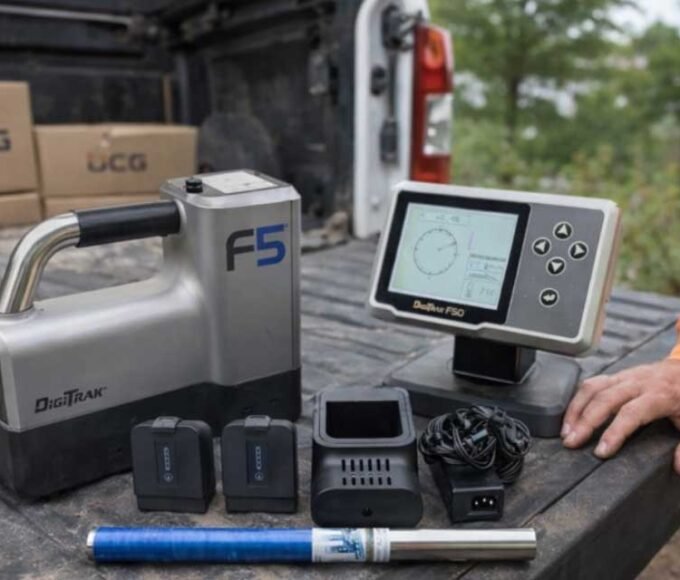Many small businesses grapple with the question, “Are fuel cards worth it?” Especially for industries characterized by considerable vehicle use, significant mileage, and frequent fueling needs. In light of this conundrum, it’s time to take a comprehensive look at how fuel cards can potentially change the game for your small business. In this blog post, we’ll scrutinize the costs and benefits of using fuel cards, providing insight to help you make an informed decision about whether they’re apt for your business. While cost-efficiency is always a concern for smaller operations, imagine being able to monitor and control your fuel expenses in real-time. Interested? Keep reading as we break down the advantages and potential pitfalls of integrating fuel cards into your business strategy.
Fuel cards can be incredibly beneficial for small businesses, providing cost savings, convenience, and enhanced control over fuel expenses. With features like detailed purchase information, spending limits, and online tools for tracking and reporting, fuel cards offer valuable insights and help streamline expense management. Additionally, exclusive discounts and rebate programs further contribute to the overall value of fuel cards for small businesses.
Advantages of Fuel Cards for Small Businesses
Fuel expenses can be a significant portion of a small business’s overall budget, particularly if there is a fleet of vehicles to manage. To this end, fuel cards can help streamline the process and offer unique benefits tailored to small businesses. Here are some advantages of using fuel cards:
Imagine trying to organize a jigsaw puzzle without all the correct pieces, it can feel frustrating and overwhelming. Similarly, tracking fuel expenses without the right tools can lead to confusion and errors.
- Rebates and Discounts: Fuel cards typically offer discounts or rebates on every gallon of gas purchased at specific locations. These savings can add up over time.
- Reduced Fraud Risks: Cash or credit card payments for fuel are susceptible to misuse or fraud. However, fuel cards have built-in purchase restrictions that only allow approved transactions.
- Streamlined Record-Keeping: Fuel card providers offer online management tools, allowing business owners to monitor fuel-related expenses in real-time and download monthly transaction reports.
- Improved Security: Business owners don’t need to carry large amounts of cash, lowering the risk of theft. Plus, drivers aren’t paying with their personal funds, which can impact cash flow at the end of the month.
- Simplified Reconciliation: Fuel card transactions are viewable through customized online portals that offer itemized receipts detailing individual expenses making reconciliation much easier.
Streamlining Fuel Expense Tracking
Fuel cards streamline expense tracking by providing features that make it easier for businesses to manage their finances. One of the key benefits is effortless access to detailed purchase information that simplifies accounting and expedites reconciliation.
Fuel card statements show details like date/time, location of purchase, gallons obtained per transaction, purchase type as well as driver IDs. This information provides an accurate record of how much was spent on fuel for each vehicle or driver in your fleet during a specific period. The built-in controls of fraud protection and online management tools also add layers of security to your expenses, ensuring that they remain in check.
For instance, if you’re running a small courier service, you can use fuel cards to monitor the amount spent on gasoline for each driver and vehicle. You get a detailed report at the end of each month, which helps track expenses easily and accurately when accounting time comes around.
- A study conducted by Edenred in 2023 concluded that approximately 65% of small businesses reported substantial savings when using fleet fuel cards.
- Experian’s 2024 Data Report indicates that roughly 73% of small business owners agree that having a fleet fuel card aids significantly in expenditure tracking and management.
- According to Fuelstat, in the year 2024, more than half of all U.S. companies with commercial fleets utilize fleet fuel cards, stating advantages such as improved cash flow and cost efficiency as primary reasons for utilization.
- Fuel cards provide businesses with an efficient way to track expenses and manage finances. They offer detailed purchase information that simplifies accounting and expedites reconciliation. This includes date/time, location of purchase, gallons obtained per transaction, purchase type, and driver IDs. Fuel card statements provide an accurate record of fuel spending for each vehicle or driver in a fleet. Additionally, fuel cards offer built-in controls for fraud protection and online management tools for added security. By using fuel cards, businesses can easily monitor and track expenses, making accounting tasks much simpler and more accurate.
Enhancing Accessibility with Mobile Options
One of the key areas where fuel cards shine is in their ability to merge with mobile technology, enhancing accessibility for businesses. With online portals and mobile apps, users can access account information and payment methods from anywhere at any time, a valuable feature for employees who may be on the road or in remote locations.
Imagine a small business owner who needs to track employee expenses while also managing other aspects of the company. Mobile options allow them to manage spending limits or transaction history with just a few clicks on their phone, increasing productivity and efficiency.
While this mobility comes with certain benefits, it’s worth considering that a fuel card’s true value may come down to associated charges, which can be prohibitive if not carefully evaluated.
Evaluating Fuel Card Associated Charges
Every fleet fuel card program has associated costs, but they don’t all involve the same type of fees. Therefore, it’s essential to understand what separates a beneficial deal from one that only adds cost without adding value.
Common charges could include application or setup fees, monthly maintenance fees, transaction fees per gallon or per purchase, late payment fees, cash advance fees, and more. It’s crucial to evaluate individual charges when researching fuel card companies based on your business needs. Some companies could offer lower annual fees but higher transaction costs per purchase; others may have no charges but provide low rewards programs.
For small businesses whose fleet operations may not generate enough volume to offset potential service fees included in the card programs, opting out of signing up might be best. However, fuel cards could provide significant savings in fuel transactions’ transparency, accounting, and expense tracking – which essentially translates to improved cash management – if selected wisely.
When evaluating associated charges coupled with benefits you expect to gain from using fleet fuel cards for your small business consider it like choosing a knife set that meets your culinary needs.
Ultimately, it’s up to each business to research different companies and compare their features and fee structures to make an informed decision that delivers tangible benefits aligned to their needs.
Factoring in Monthly Fees
Before deciding if fuel cards are worth using for small businesses, it’s essential to consider the monthly fees that come with them. Some providers will charge fees while others may offer no-fee options. It’s important to weigh the costs against the potential benefits before making a final decision. For example, if a card offers extensive savings and rewards programs, those benefits may outweigh the monthly fees. However, if a business doesn’t need those extra features, then paying a monthly fee may not be worth it.
Another point to consider when factoring in monthly fees is how often the card will be used. If a business only uses fuel occasionally, it may not see enough savings to justify paying the fees each month. Conversely, a business that uses fuel frequently could potentially save enough money to cover the cost of the monthly fee and still come out ahead.
Calculating Potential Savings and Rewards
One of the primary reasons small businesses use fuel cards is to save money on fuel costs. Fuel card programs often provide discounts per gallon and attractive reward incentives to businesses that use them consistently. Before choosing a fuel card program, it’s essential to compare potential savings by analyzing several factors such as:
- Average gallons of gas purchased per month
- The location(s) of the preferred gas stations where purchases are made
- Per-gallon discount rate offered by different fuel card programs compared to non-fuel card purchases
- Whether there are opportunities for additional rewards or bonuses through various participating vendors
Using these factors, businesses can calculate their potential savings for each provider and choose one that best meets their needs.
For instance, let’s say your small business buys 500 gallons per month at $2.50 per gallon from Valero gas stations with an 8-cent discount through its fleet card program over normal rates available elsewhere. By using the Valero Fleet Plus Card, you could save $40 on fuel per month or $480 over 12 months based on consistent purchases at that rate.
It’s also important to consider other potential benefits of fuel card programs. These include easy expense tracking, automated accounting, fraud prevention features, customizable spending limits, and optional driver ID systems.
Additional Small Business Considerations
Fuel cards may seem like a no-brainer for small businesses, especially those with vehicles that need to refuel regularly. However, before committing to one, there are several considerations to keep in mind. One such aspect is the flexibility of the fuel card program you’re considering. While some offer generalized rewards and discounts, others will have tailored offers depending on business activities.
For instance, if your business involves frequent long hauls that require lodging, having a fuel card that aligns with hotel discounts could save your business significant amounts.
Another aspect to consider is whether or not you have control over employee spending limits and tracking expenses on your end. This will typically be determined by a mix of affordability and business goals. The aim of a fuel card program is not only to reap discounts and rewards but also to streamline account management and avoid hefty expense misalignments.
Navigating Credit Approval Criteria
Applying for a fuel card requires an exercise in patience and thorough preparation beforehand. It’s not just about knowing the benefits and costs – though these are crucial elements – your credit score might play a significant role in determining whether you obtain approval for the card.
Fuel companies tend to look at two main aspects; payment history and overall credit score when deciding whether or not to approve an account application. A high credit utilization rate can be detrimental and significantly reduce one’s chances of securing approval. What’s more, different companies have their own set time periods that they tend to evaluate applicants’ records.
One way any small business owner can navigate this procedure is by doing their due diligence beforehand by researching the company they want to apply to thoroughly. This means identifying the specific requirements of the chosen provider so as not to waste time on ineligible applications.
It’s important to remember that fuel companies and banks have varying credit policies, with some stricter than others. It’s therefore vital to weigh the costs of lost time in strict applications against the potential long-term rewards of a successful application.
















